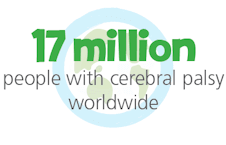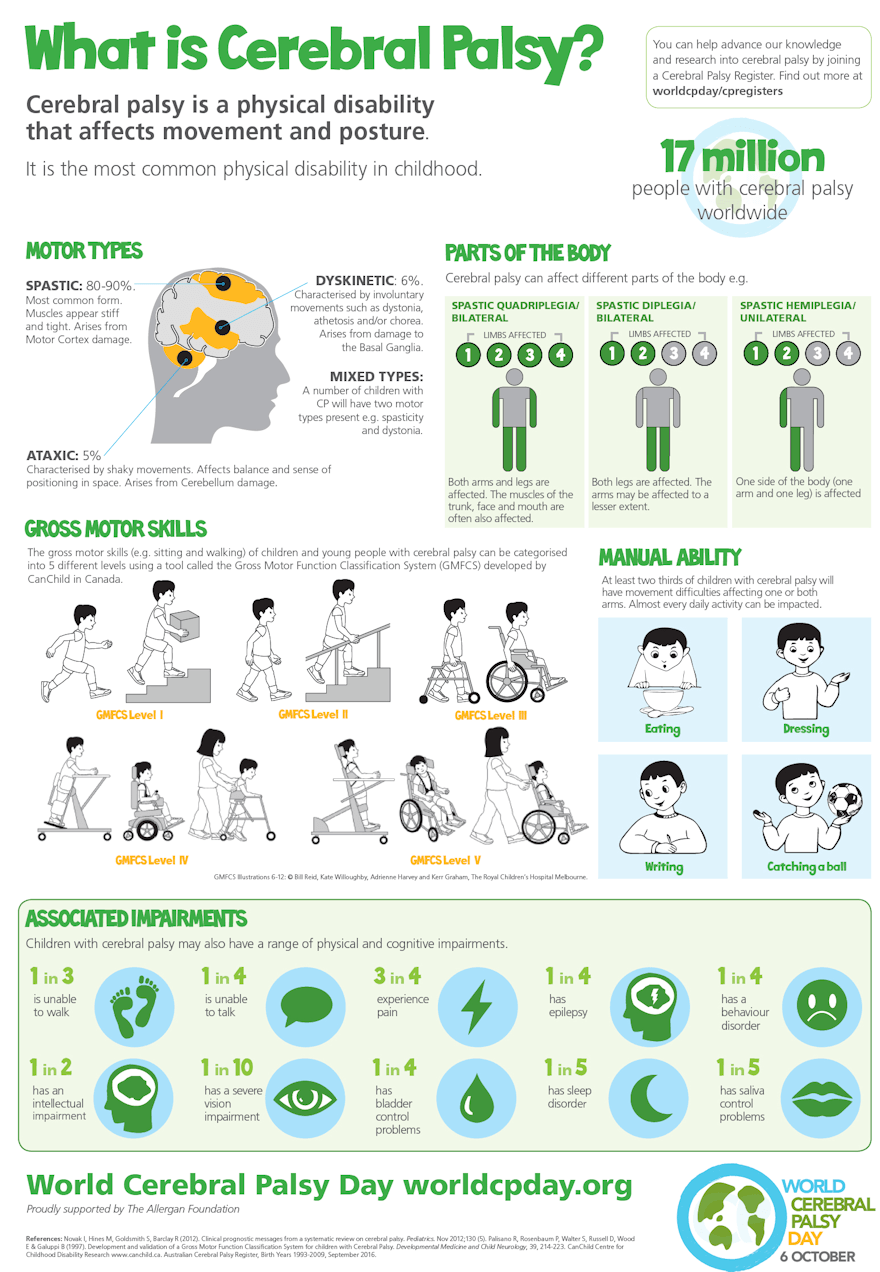If you want to find out more about cerebral palsy, including symptoms, causes, the different types, and when you can claim for it, read our guide here.
 Cerebral palsy is an umbrella term for a group of developmental disorders caused by damage to the brain that can happen before, during or shortly after birth.
Cerebral palsy is an umbrella term for a group of developmental disorders caused by damage to the brain that can happen before, during or shortly after birth.
It’s a non-progressive condition (which means that it doesn’t get worse in time) affecting movement, co-ordination, balance and posture. It can, therefore, affect a person’s gross motor ability, such as crawling, standing, walking and running; and fine motor ability, such as grasping, dressing, eating and writing. It may also affect vision, communication, learning and behaviour.
Symptoms will vary from person to person, depending on where the brain is damaged and to what extent.
Unfortunately, there is no cure, but treatments including surgery, medication and therapies can help to relieve the discomfort of tight muscles. Treatments can also manage the associated medical problems, such as epilepsy, hip dislocation and contractures.
Several complex factors can contribute to a baby experiencing brain damage and developing cerebral palsy. These include infection during the mother’s pregnancy, a difficult birth, premature birth and illness shortly after birth. Often the exact causes are unknown.
Please browse the site to find out more about the different types of cerebral palsy and what support is available to make living with the disorder easier.
- Types of cerebral palsy
- Symptoms of cerebral palsy
- Causes of cerebral palsy
- Treatments for cerebral palsy
- Alternative therapies
- Living with cerebral palsy
- Support with education and work
- Access to support groups
Often the injury to the brain cannot be avoided, but there are instances where substandard medical care (medical negligence) has contributed or caused the injury. You can discover more about this below.
- Cerebral palsy legal issues
- Understanding medical negligence law
- Life expectancy for people with cerebral palsy
- Managing compensation

– Michael Morris